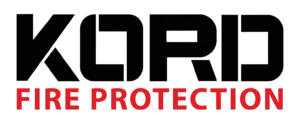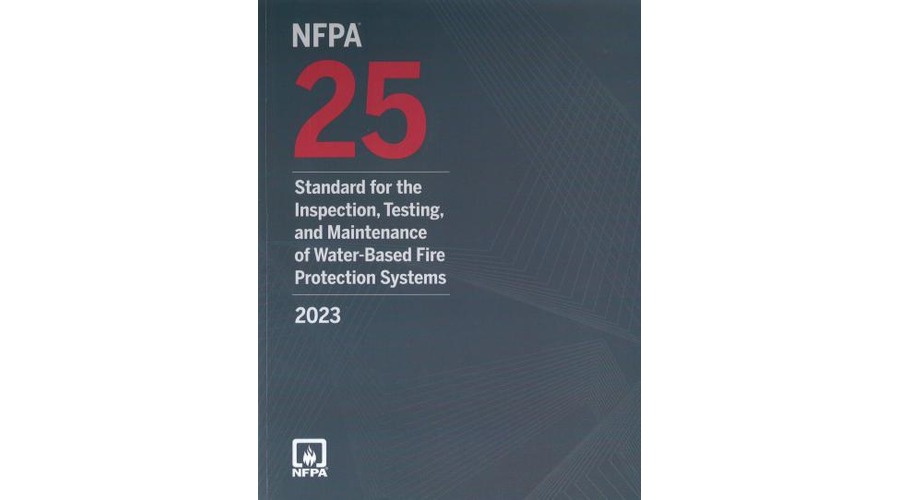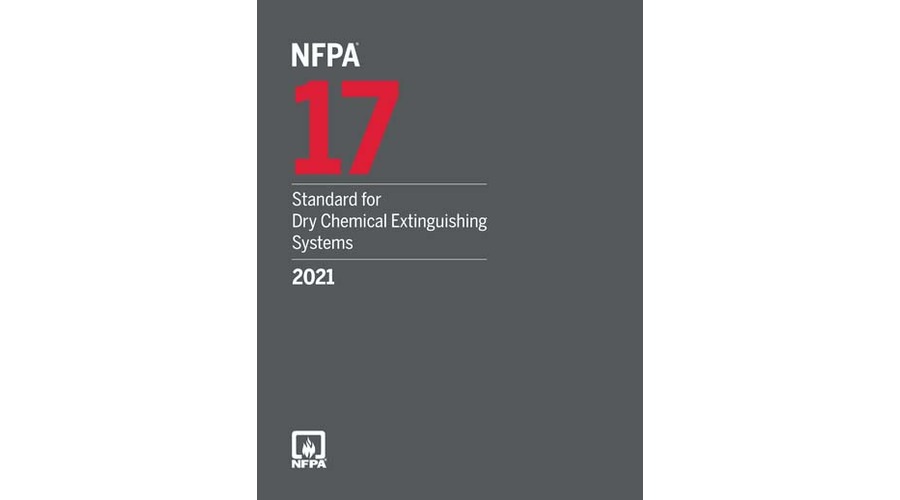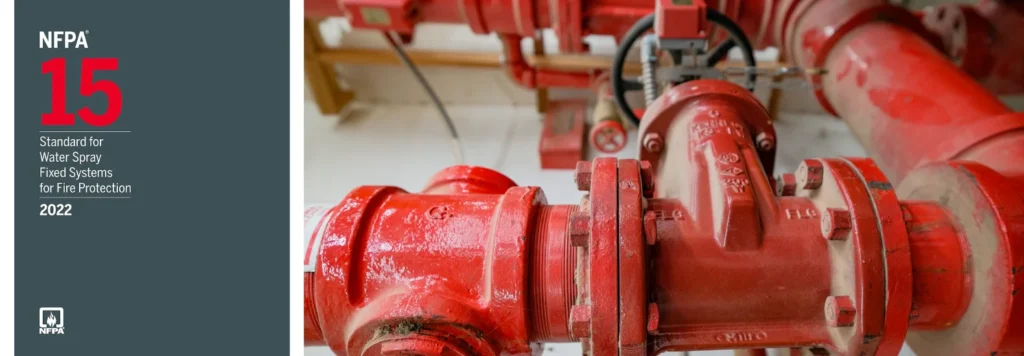

5 Common Fire Sprinkler Problems and How to Fix Them
Common Fire Sprinkler System Problems
Fire sprinklers are often the first line of defense in the event of a fire. These systems are trusted to effectively suppress fires in both residential and commercial buildings. However, like any mechanical system, they can develop problems over time. That’s why fire sprinkler repairs and maintenance are essential for ensuring the system functions as intended during an emergency. Even minor common fire sprinkler problems can lead to system failure if left unchecked. Luckily, however, these issues leave clues that can be easily identified through regular inspections and testing from a qualified fire protection technician.
But Why Is My Fire Sprinkler Leaking?
It’s a question people ask themselves when these things happen.When water is leaking from a fire sprinkler head, it can be a major headache. It can signal a problem with your system that needs immediate attention. Whether it’s due to corrosion, damage, or a blocked pipe, addressing the issue quickly is key to preventing water damage and ensuring your building’s safety. In this guide, we’ll break down common causes and solutions, helping you understand what steps to take for effective fire sprinkler leak repairs.
1. Leaking Fire Sprinkler Heads
A leaking fire sprinkler head is one of the most common problems for a fire sprinkler system. Common causes include, but are not limited to, corrosion, wear and tear, and physical damage to the sprinkler head itself.
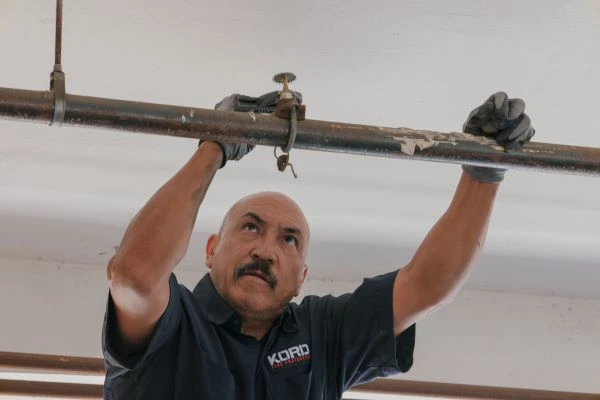

Signs of a Leaking Sprinkler Head:
- Visible drips or puddles around the sprinkler
- Water stains on the ceiling or walls
- A drop in water pressure
How to Fix Leaking a Sprinkler Head:
- Identify the Source of the Leak: Ensure the leak is coming from the sprinkler head and NOT nearby pipes or connections.
- Turn Off the Water: Before performing any sprinkler repair, ensure the water to the system is shut off.
- Replace the Sprinkler Head: Replacing the damaged or corroded sprinkler head will resolve this issue.
- Call a Professional: Fire sprinkler issues often require certified professionals. Call a trusted fire sprinkler expert to monitor, maintain, install, and repair your fire sprinkler heads.
2. Corrosion in Pipes
Corrosion inside fire sprinkler pipes is common, especially in older systems. If left unchecked, corrosion can cause blockages, leaks, or even complete system failure.
Signs of Pipe Corrosion:
- Rust-colored water
- Leaks or cracks in the pipes
- Reduced water pressure
How to Fix Pipe Corrosion:
- Inspect the Pipes: Look for any visible signs of rust. Your technician should check for this during inspections.
- Replace Affected Sections: In minor cases of corrosion, it may be possible to replace only the corroded sections of the pipe. However, if corrosion is widespread, replacing larger sections or even the entire pipe network may be necessary.
- Consider Pipelining: For some less-damaged systems, pipelining can coat the inside of the pipes and prevent further leaks.
- Regular Maintenance: Regular maintenance checks can help catch corrosion early before it leads to more significant problems.
- Call a Professional: Fire sprinkler issues often require certified professionals. Call a trusted fire sprinkler expert to treat corrosion and spot potential causes.
3. Fire Sprinkler Pipe Burst
A pipe burst is one of the most severe problems for a fire sprinkler system. It often occurs in cold climates when pipes freeze, but it can also result from damage due to corrosion.
Causes of a Pipe Burst:
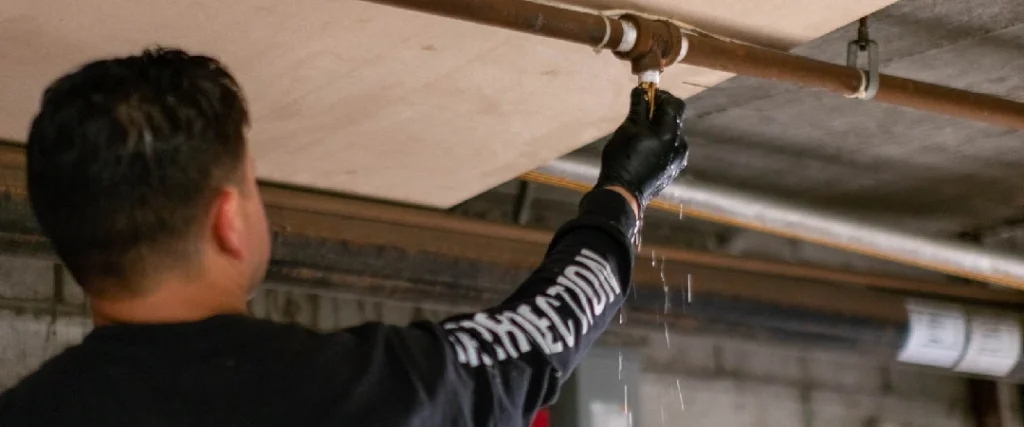

- Freezing temperatures cause water to expand inside the pipes
- Corrosion can weaken the pipe structure over time
- Improper installation or physical damage to the pipes
How to Fix:
- Shut Off the System: Immediately turn off the system’s water supply to prevent any further water damage and flooding.
- Locate the Burst: Inspect the system to identify the exact location of the burst.
- Replace the Pipe: The affected pipe must be replaced once the location is identified. In some cases, additional sections may need to be replaced if they show signs of stress or wear.
- Winterize the System: If freezing temperatures cause a burst, it may be necessary to winterize the system. This may include adding insulation around the pipes or installing a dry pipe system in areas prone to freezing.
- Call a Professional: Pipe bursts are serious issues that require serious attention. For issues like a burst pipe, call a trusted fire sprinkler expert like KORD Fire Protection immediately.
4. Faulty Control Valves
Control valves regulate the flow of water to your fire sprinkler system. If these valves become damaged or stuck, your system may fail to function correctly.
Signs of a Faulty Valve:
- Difficulty opening or closing the valve
- Visible signs of wear, corrosion, or rust
- The system is not responding correctly during tests
How to Fix:
- Inspect the Valve: Check the control valve for visible signs of damage. Ensure the valve is open to allow water to flow into the system.
- Remove Debris: In some cases, valves may stick due to debris buildup. Regular inspections and maintenance can prevent this.
- Replace the Valve: Significantly damaged valves will likely need to be replaced.
- Monitor the System: Regular valve testing and inspection should be part of your routine maintenance.
5. Electrical Malfunctions in the Control Panel
Modern fire sprinkler systems often include an electronic control panel that monitors system performance and triggers alarms in the event of a fire. Electrical malfunctions in the control panel can prevent the system from activating when needed.
Signs of Control Panel Issues:
- Alarms or alerts on the panel indicating a malfunction
- The system doesn’t respond during testing
- False alarms or failure to activate
How to Fix:
- Check Power Supply: Ensure that the control panel is receiving adequate power. Note that tripped breakers or blown fuses can cause the panel to malfunction.
- Reset the System: Resetting the system is a simple but effective way to resolve many minor issues. Follow the manufacturer’s guide for proper resetting procedures.
- Inspect for Damage: Look for any visible damage to wiring, circuits, or the panel itself. A licensed professional should always handle electrical damage.
- Replace Faulty Components: Have a trusted professional inspect your control panel and replace any faulty components as necessary.
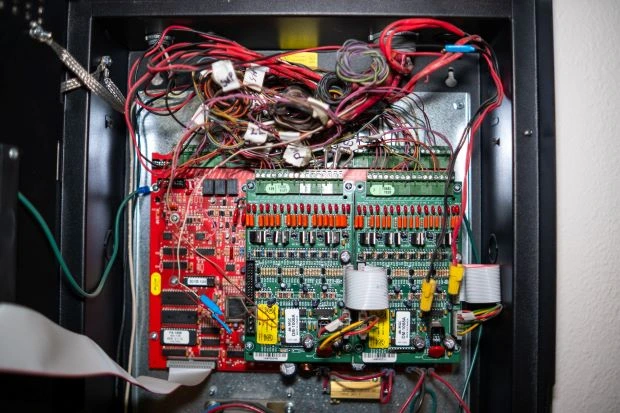

Conclusion
While these problems are all fairly common, human error is, by far, the leading issue facing fire sprinkler systems. In fact, human error accounts for over 90% of fire sprinkler failures due to either neglected maintenance, the system simply being turned off, or another related issue. Teaming up with a trusted fire protection company like KORD can help ensure your system functions properly.
Is Your Fire Sprinkler System Having These Common Problems?
At Kord Fire Protection, we specialize in diagnosing and repairing every type of fire sprinkler system leak, from corroded pipes and faulty valves to burst lines and leaking sprinkler heads. Our certified technicians ensure your system is fully operational, compliant, and built to last. Regular inspections and maintenance not only prevent costly repairs but also keep your property protected and your fire sprinkler system performing at its best.
